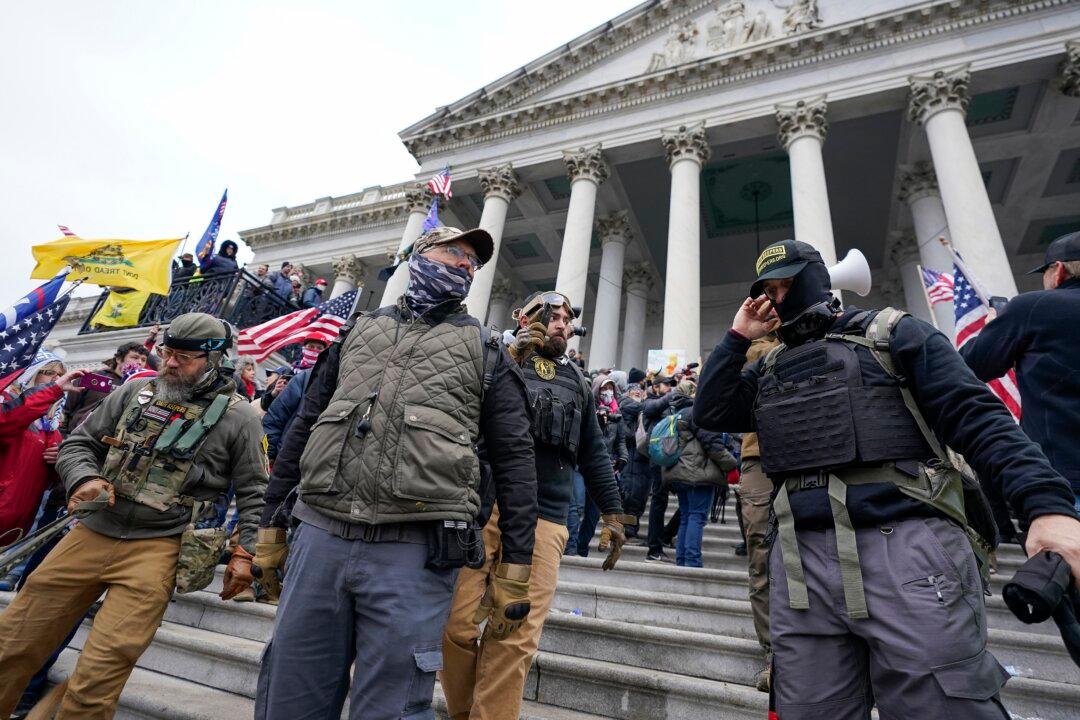Two Army veterans and members of the Oath Keepers have been handed prison sentences following the group’s founder’s conviction for their involvement in the breach of the U.S. Capitol on Jan. 6, 2021.
U.S. District Judge Amit Mehta presided over the sentencing, with Jessica Watkins, a resident of Woodstock, Ohio, receiving a prison term of eight years and six months. Kenneth Harrelson, from Titusville, Florida, was sentenced to four years.





